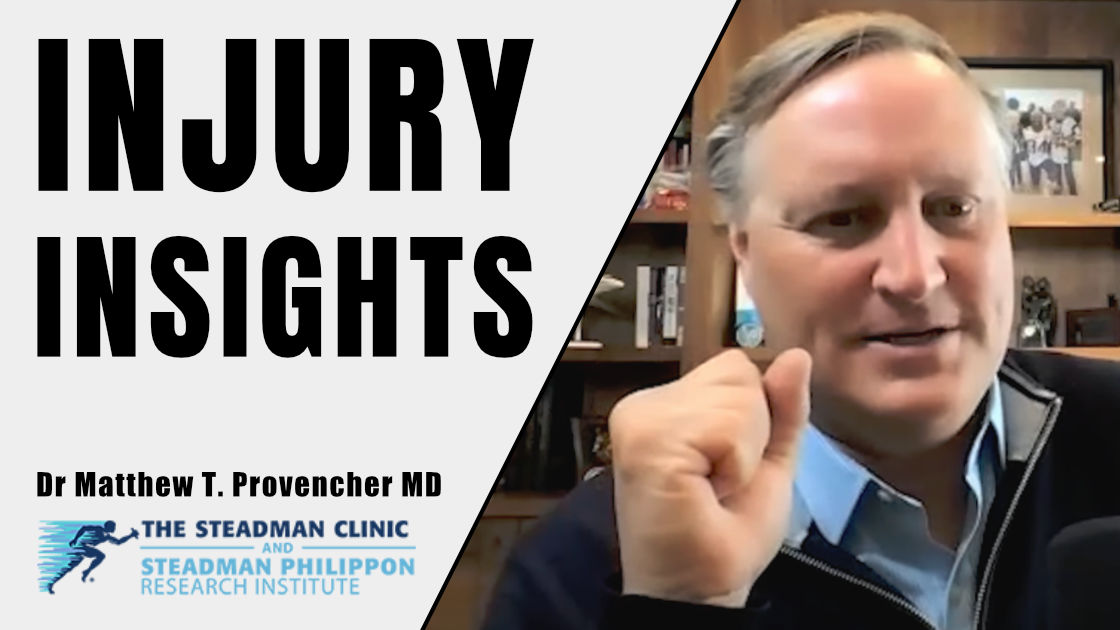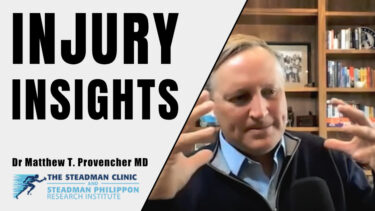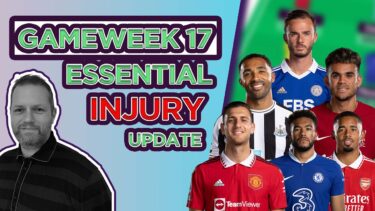

Following the news that Jakob Moder was required to undergo a second surgical procedure to address some “stiffness and restrictions” in his knee after rupturing his anterior cruciate ligament, concerns amongst Brighton supporters are growing that the Poland international, who will now miss the upcoming World Cup in Qatar, may not fully recover from this latest setback. But Matthew Provencher believes players can return better and more robust than they once were…
Can you come back from ACL injury stronger?
We’ve seen it all before. Player X is injured. It’s the dreaded ACL. They take to Instagram. The hard work starts now. Back stronger. Maybe a flexed bicep emoji.
But how much of the cut-and-paste bulletin is platitude, and how much is rooted in science? Can you really emerge from an anterior cruciate ligament setback as an improved athlete?
For the answer, Premier Injuries spoke to Dr Matthew Provencher, an orthopaedic surgeon and world expert in all things ACL.
In years gone by, a rupture or tear to the tiny ligament at the centre of the knee joint could be a death knell for a professional sportsperson’s career. But Dr Provencher’s cutting-edge work with the Steadman Clinic in Vail, Colorado has offered hope.
He told Premier Injuries how ACL rehab is often a portal to supercharged athletic development.
“Elite athletes may be elite on the field, but they may not be elite in terms of their glutes, their hamstrings, their quads.
“They may be totally out of balance. They might have been doing it totally wrong and have been getting away with it because they are a superior human being and athletic specimen.
“This is going to be a speed bump in your professional career, but the athlete has the opportunity to improve greatly in this area after an ACL injury.
“You may be way too quads-dominant, your hamstrings might be terrible, you might not do any posterior chain stuff. Your glutes might appear good, but when you really test it and isolate the glute med, it’s not great.
“Your reaction time on your ankle and your perennial muscles and your ability to have the have your ankle pivot and precisely move and balance your whole kinetic chain, which is from your head all the way down to your toes, may not be there.
“You might have been able to get away with it because you’re a superior specimen. You might score all these EPL goals, but you’d be surprised how many of these guys haven’t got the correct muscle balance. Terrible, not great at all.
“But I would say that you are going to come out better on the other side because you have not done the right things in the past, and now we can fine tune them.
“It’s a little bit tougher if you have got these great athletes who are already doing the right things. You might have got everything right. You’re going to have a little bit of a harder time getting back because you have already fine-tuned your body at the highest level.
“But look at Tom Brady. In 2006, post-ACL injury, he had a lot of work to do. That’s why he came back better. He was unbalanced, he hadn’t done all that work. But the last 16 years, he did all of that. That’s why he has been able to function at the level he has done over the last 16 years.
“There are plenty of people who think they’ve got it all figured out. I actually like that because we can use this speedbump time to tune the body up.”
The above is an overview. Dr Provencher further explored the detail in his 40-minute interview with Premier Injuries.
To learn more about ACL recovery time, the role psychology plays in rehab, and the specifics of the ‘terrible triad’, watch the full interview below.



